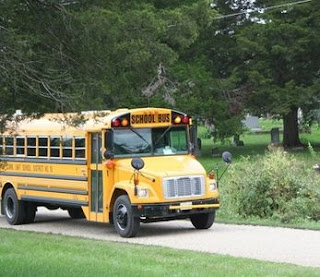I was just reading to my
six year old this evening Ramona's World, The adult letter. In the story,
Ramona and he friend write a letter to a salesman who misuses the English
language in an advertisement. they get a letter back and they are so
excited about this prospect! Well this happened to me today! I
wrote Ibex asking them about their wool and how they claim to be sustainable,
and they wrote right back. Their letter still left me with unnswered
questions about where their sheep grow and where their factories are...but I
wrote him back (see the bottom) and asked these questions. It is exciting
to look into this, and to have a response from a company who actually seems to
take some serious consideration to the sustainable and ecological and socially
responsible development of clothes is refreshing. It helps me on my quest
to buy only clothes that are sustainably grown...which will be tough...not sure
i can swing it.
Anneliese,
Thank you for your
email.
Ibex takes a great
deal of pride in our selection process of which farms we will work with. No
sheep has ever been slaughtered for meat after the shearing process, we use the
same farms with the same sheep year after year. Ibex currently has 70% of
our products that are Zque certified. Zque fibre combines natural performance
wool with an accreditation program that ensures environmental, social and
economic sustainability, animal welfare (non-mulesed) and traceability back to
the source. I have attached a link to the Z’Que web site for your review so you
can see the high standards that all farms are held to before Ibex will consider
using their wool. www.dicoverzque.com
As for dying our
fabrics, our wool is minimally processed when it comes to chemicals. The greasy wool (sheared from the farm) is put
through baths that clean mostly with water and may use a little soap. The
wool is combed to get the debris out. If it is a washable fabric we use the
Hercoset process to gently remove a minimal amount of the barbs so the fabric
will not felt together which makes the fabric shrink. The Hercoset process uses
chlorine and resin. It is a closed loop process concerning the
environment. This happens at the cleaning step. At the spinning, the wool is further combed
and cleaned and then spun into yarn. If it is a felted or
milled fabric it basically is just washed using soap and water before and after
it is dyed. All they dyes we use
are the best environmentally, they do not contain heavy metals. The
washing/final finish uses basic soap and water. At the end of the fabric
process all the fabrics are tested to make sure they are PH balanced.
Please let us know if
you have any further questions about Ibex or the practices we use with our
wool. Thanks and have a great day!
Tim Barrett
Customer Service Representative
Ibex Outdoor Clothing
132 Ballardvale Drive
White River Junction, VT 05001
800-773-9647
tbarrett@ibex.com
HI there, thank you
for your quick response. I am curious where the sheep live that you
purchase your wool from? In the US? Also, I was wondering where
your factories are that put the clothes together? Are those in Vermont?
Thanks again, your input
is extremely helpful and I was very pleased to see such a detailed response. I
will look at the links you sent me and look at all the information more in
depth, I was just wondering those questions as I read on.
Thanks,
Anneliese



.jpg)









.jpg)
.jpg)



















